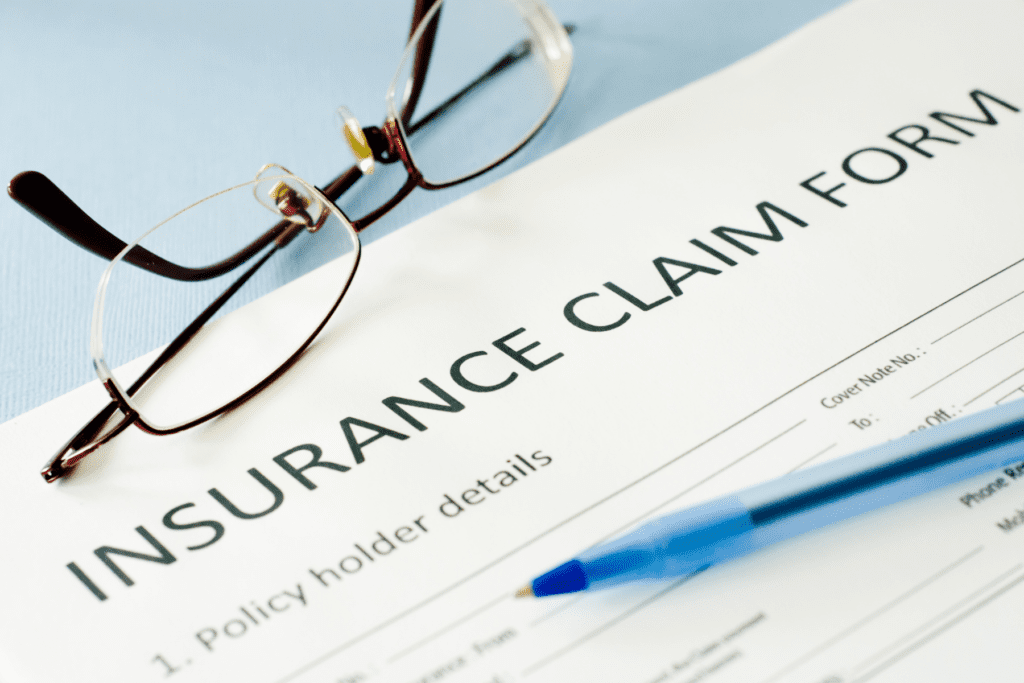Bad Faith Insurance Claim
Before having to file for bad faith insurance claims, many people mistakenly believe that insurance companies want to help you. This is simply untrue; insurance companies want to make money, and sometimes they will engage in dishonest or even illegal business practices in order to avoid paying a claim. That’s where Marrs Griebel Law Ltd comes in; we can help you get the money you deserve and offer free consultations.
How do I dispute an Albuquerque insurance claim?
When your insurance company refuses to pay all or a portion of your claim, you can dispute their decision. We recommend that you work together with a lawyer as soon as you feel that your claim is denied in bad faith; the earlier you secure a lawyer, the more we can do for you.
To dispute a claim effectively, you will need to read and understand your entire insurance policy, as well as New Mexico state law. Depending on the type of claim, you may need to locate your own professional appraiser in order to get a more accurate estimate from an independent party. Once you are prepared to dispute the claim, if you are not proceeding with help from a lawyer (which is the most effective and reliable way to dispute an insurance claim), you will contact a claims adjuster.
Claims adjusters will always try to convince you to accept the original decision from the insurance company, and particularly if the insurance company has already acted in bad faith, the adjuster may try to get you to admit fault, discuss injuries that may have happened, or make a recorded statement about your case. Usually, you will need to ask to speak to a supervisor to begin to make any sort of progress, where you will face similar problems. It is always much safer and easier to work with an attorney so that you don’t have to worry about saying something that may ruin your chances of receiving the compensation you deserve.
What does disputing an insurance claim mean?
Disputing an insurance claim means that you do not agree with the amount of compensation your insurance company is offering for your claim, or you do not agree with your insurance company denying your claim. By disputing a claim, you are
What if you don’t agree with your home insurance adjuster?
If you don’t agree with your home insurance adjuster and believe that you may need help with a bad faith insurance claim, you should contact Marrs Legal for a free consultation to see if we can assist you in getting the money you deserve.
Why would health insurance deny a claim?
Health insurance claims can be denied for a huge variety of reasons. From medical billing errors to missing information, there are many reasons why health insurance claims may get denied through no fault of your own. Health insurance claims may also be denied because of coverage limits or fine print in your health insurance policy. If you went out of state or to a different doctor than usual, there is a good chance that you went to an out-of-network provider who is not covered. If you went over your claim and policy and believe that you have a bad faith insurance claim, you should schedule a free consultation right away in order to decide on the best way to proceed.
Why are claims denied?
Insurance claims can be denied for many reasons. Sometimes claims are denied due to processing errors or missing paperwork, and can be fixed quickly and easily. Other claims get denied due to fine print in your insurance policy you may have been unaware of. However, bad faith insurance claims are common, especially when dealing with a large claim that is going to cost the insurance company a lot of money.
Can you appeal an insurance claim?
If your insurance claim is denied, you can appeal the decision. Once you receive a denial letter, you need to respond in a timely fashion, and be sure to take the right steps so that an insurance company acting in bad faith cannot use your actions as new reasons to deny your claim. If you do call your insurance company before speaking with a legal professional, you should be careful what you say to the representative.
Some people choose to wait for an offer from the insurance company before scheduling their free consultation, which leaves them vulnerable to getting taken advantage of by the insurance company. Insurance companies always have a legal team on their staff who are experienced in using legal loopholes and often shady practices in order to save money or deny a claim. If you are speaking with a claims adjuster about a car accident, for example, do not give them any statements admitting fault or allow them to use medical release forms.
Do banks really investigate disputes?
Banks will investigate disputes that involve chargebacks or other types of fraud, but typically do not investigate disputes regarding insurance claims. On rare occasions, banks may become involved if someone has committed insurance fraud involving a bank account.
What is the legal definition of a dispute?
Insurance disputes are “an argument or disagreement about a request to an insurance company to pay for costs related to damage, an accident, etc.” according to the Cambridge Dictionary. Whenever you are forced to disagree with the insurance company about the amount or denial of your claim, you are disputing it.
Is a dispute the same as a complaint?
An insurance dispute is not the same as an insurance complaint. An insurance dispute is a process you undergo with your insurance company, where you disagree with the amount or denial of your claim, and attempt to come to a reasonable agreement.
An insurance complaint, on the other hand, is a formal complaint that you file with your state’s Insurance Commissioner, often about a dispute over a bad faith insurance claim. While filing a complaint with the state Insurance Commissioner sometimes causes disputes to become resolved, they are not allowed to act as your lawyer, and we still recommend that you retain legal counsel in order to file a complaint correctly and with the documentation needed to prove that the insurance company acted in bad faith.
Insurance complaints are usually used as a last resort, because they require much more time and effort than going through the insurance company directly by disputing a bad faith insurance claim. For both Albuquerque insurance disputes and insurance complaints due to bad faith insurance claims, it’s always safer for you to retain legal counsel so that you have professional representation.
What should you not say to a claims adjuster?
Claims adjusters often make a living convincing people to accept low or denied insurance claims. If you receive a bad faith insurance claim, we highly recommend you schedule a free consultation as soon as possible. However, if you do speak with a claims adjuster before you have legal representation, there are things you should not say. Some things you should not say to a claims adjuster include:
- Statements that admit fault – A common way people accidentally admit fault is by saying “sorry” out of habit. You should never make any statements admitting fault to an insurance claims adjuster.
- Release of medical information – A tactic often used by insurance claims adjusters acting in bad faith is to try to convince you to sign a release so they can view your entire medical history and not just the injuries relevant to your claim.
- Independent medical examinations – Do not agree to an independent medical examination (IME); the physicians are hired by the insurance company. If your insurance claims adjuster is asking you to submit to an IME, you should retain legal counsel.
- Pre-existing medical conditions – Do not answer any questions regarding your health history or offer any information on pre-existing conditions you may have.
- Statements about the claim – Do not speculate about what happened or offer a recorded statement about the claim.
- Don’t accept the first offer – If your insurance company makes a quick offer to settle a bad faith insurance claim, you should call for a free consultation. Usually, offers made quickly are to settle claims before they cost the insurance company more money.
- Don’t lie or speak in a rude manner – Everything you say to an insurance claims adjuster is being recorded, and may be brought up at a later date.
Who should I call about bad faith insurance claims and disputes in Albuquerque?
Marrs Griebel Law understands how insurance companies attempt to save money with bad faith insurance claims. We can quickly and effectively fight against bad faith insurance claims and have decades of experience. Bad faith insurance claims in Albuquerque happen often, and the insurance companies won’t fight fair, often trying to trick you into saying something that will hurt your case.
Should you find yourself faced with difficulty in dealing with an insurance carrier, you believe that there may be a claim for insurance bad faith, do not hesitate to contact our office for a free consultation in Albuquerque.


 SEO Website Design services by WSI Web Enhancers
SEO Website Design services by WSI Web Enhancers
